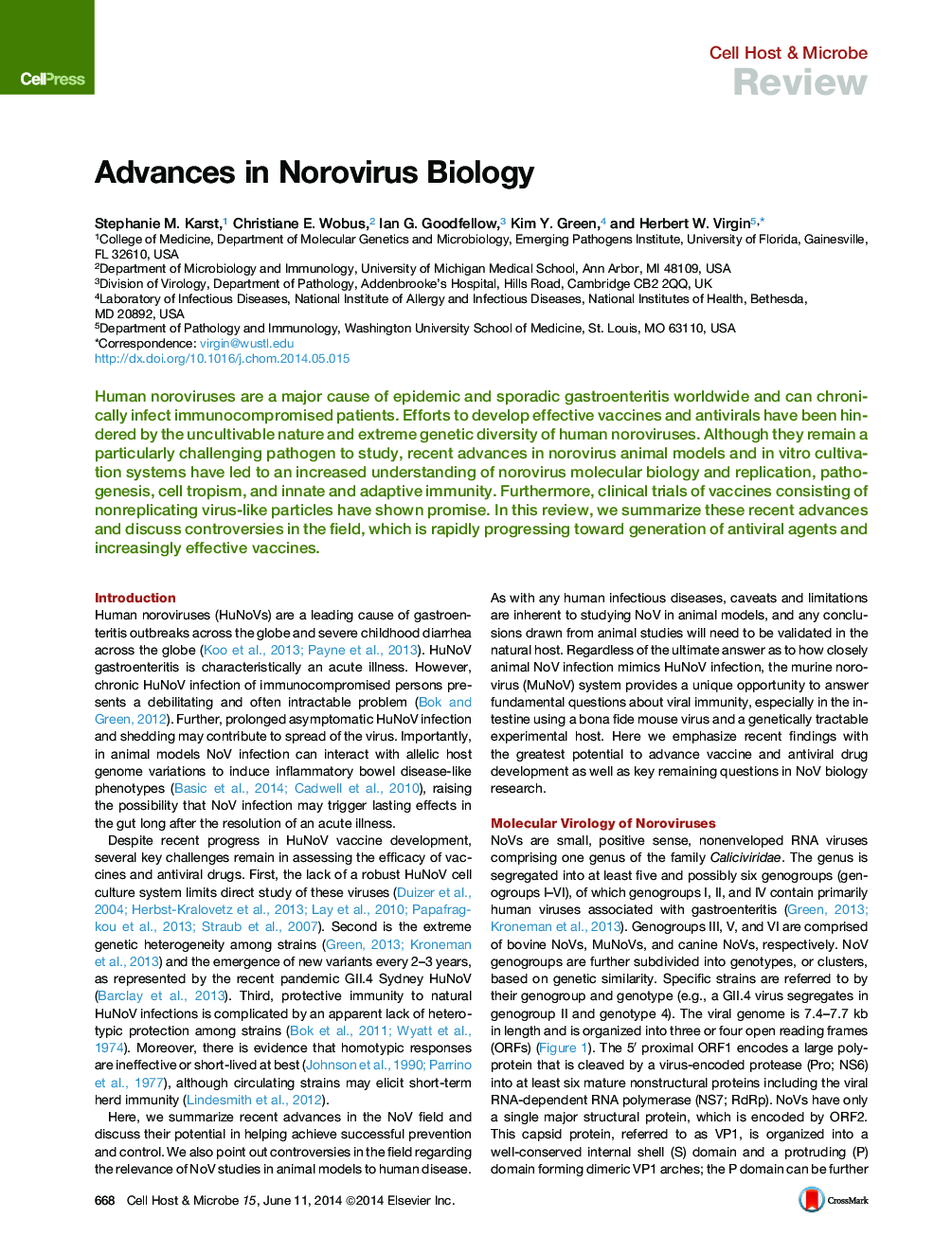| Article ID | Journal | Published Year | Pages | File Type |
|---|---|---|---|---|
| 4361055 | Cell Host & Microbe | 2014 | 13 Pages |
Human noroviruses are a major cause of epidemic and sporadic gastroenteritis worldwide and can chronically infect immunocompromised patients. Efforts to develop effective vaccines and antivirals have been hindered by the uncultivable nature and extreme genetic diversity of human noroviruses. Although they remain a particularly challenging pathogen to study, recent advances in norovirus animal models and in vitro cultivation systems have led to an increased understanding of norovirus molecular biology and replication, pathogenesis, cell tropism, and innate and adaptive immunity. Furthermore, clinical trials of vaccines consisting of nonreplicating virus-like particles have shown promise. In this review, we summarize these recent advances and discuss controversies in the field, which is rapidly progressing toward generation of antiviral agents and increasingly effective vaccines.
